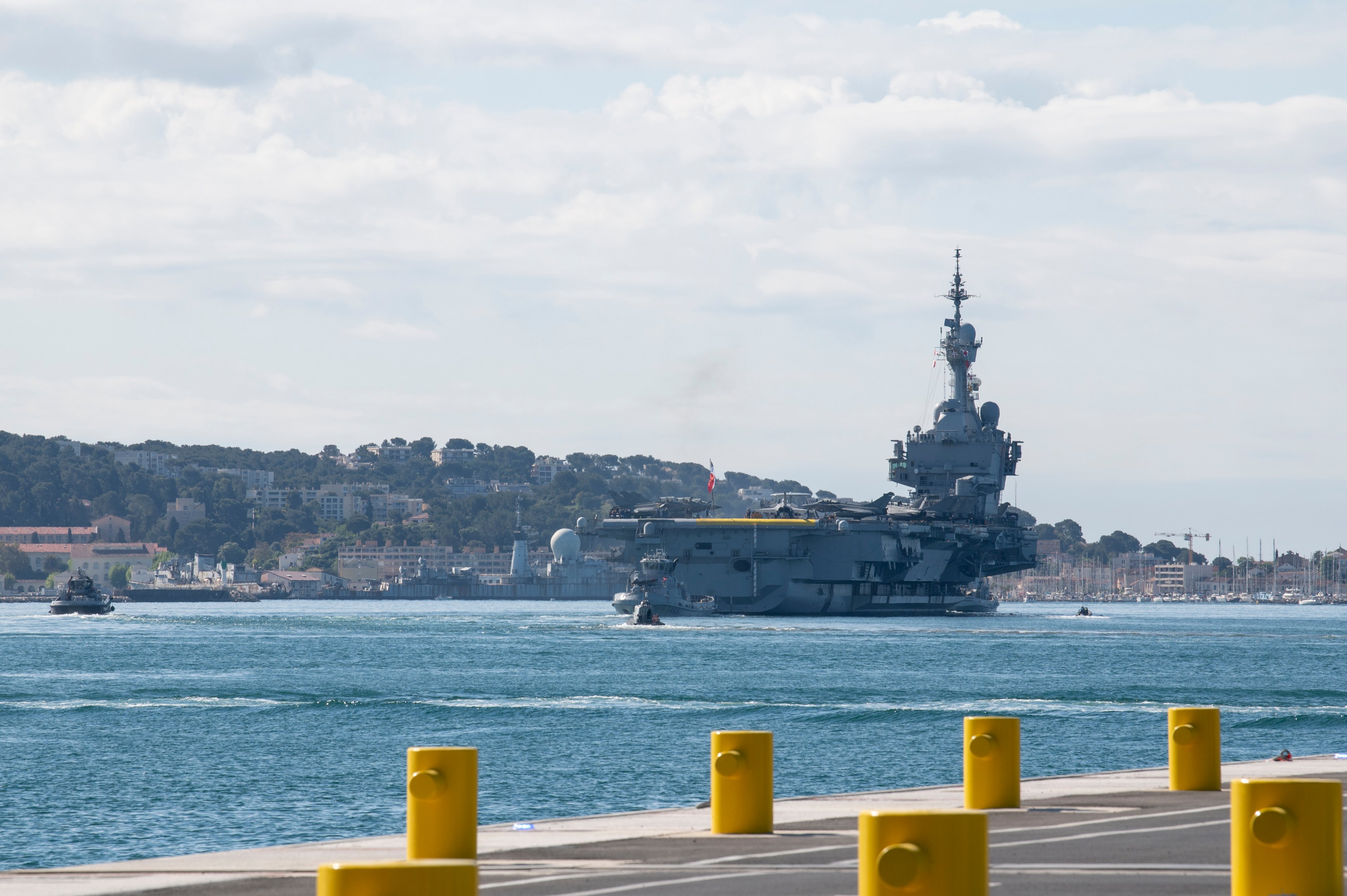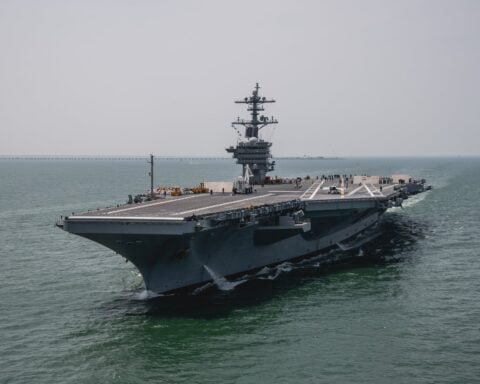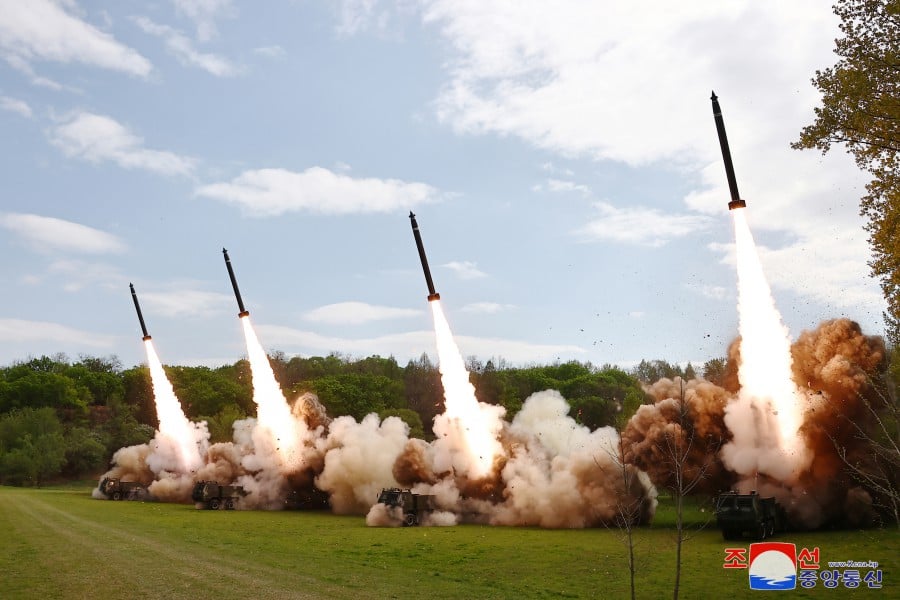
In Malcom Gladwell’s bestselling book, The Tipping Point: How Little Things Can Make a Big Difference, he provides an example how New York City lowered crime by employing a program based on the “Broken Window theory.” The theory was the brainchild of James Q. Wilson and George Kelling “who argued that crime is the result of disorder. If a window is broken and left unrepaired, people walking by will conclude that no one cares and no one is in charge.” When this theory was put into practice in New York and the little things were taken care of (i.e. cleaning up graffiti) crime went down, and the residents of New York felt more secure and proud of their city.
The Navy’s new leadership team in Washington fortunately are not tasked with solving a crime wave in the fleet, but the concept of the Broken Window theory applies to any organization—fixing the little things can make a big difference.
For example, as a junior enlisted sailor in the early 1980s, I recall the morale boost created by the decision to toss out many of the experimental uniforms of the late 1970s and the return of classic Navy uniforms. The boost in esprit de corps brought on by these minor changes swept through the fleet like a wave. This was seemingly a little thing. But it made a real impact on morale by boosting pride and professionalism in the force.
I recently polled approximately 40 of my active duty and retired Navy friends and asked them to “share one quick, cheap, and easy thing you would tell the new Navy leadership team to fix.” The respondents ranged in pay grade from E-6 to O-6. Here are the top five responses:
Canceling the plan to end Enlisted ratings
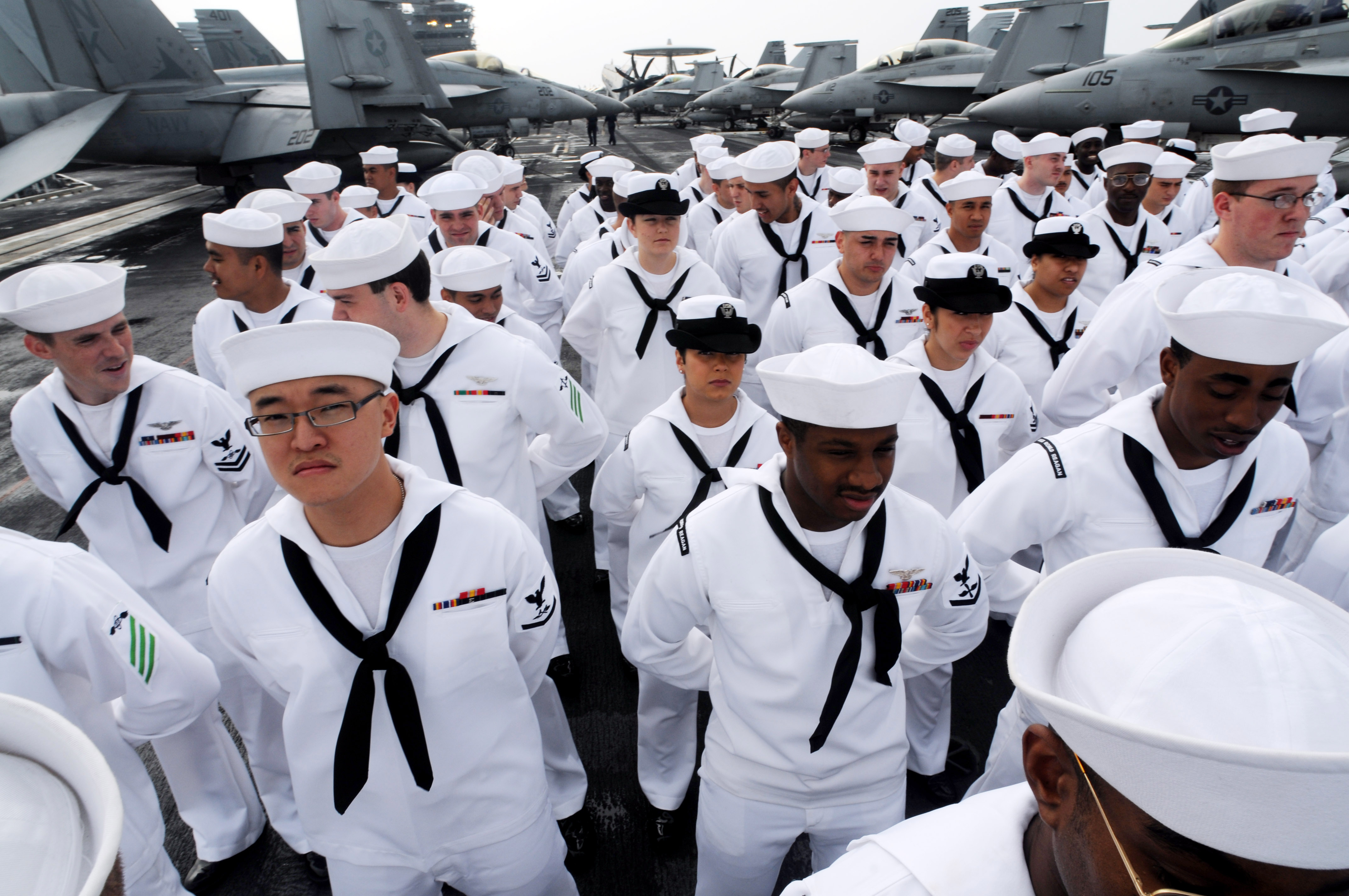
Rolling back the rattings change was the top response in my informal poll. Much has been written and said about this very unpopular decision, including Force Master Chief Jon Port’s cogent counter-point article “Navy Ratings Sail into the Sunset,” where he argues that “abolishing ratings is another example of politically directed top-down social engineering that does not strengthen, train, or benefit sailors in any way” (Proceedings NOV 16). Karen Daigle, former Naval Aircrew with the unique experience of having served in the Navy, Army, and Air National Guard, said she is proudest of her Navy service and that “Navy leaders should stop trying to turn the Navy into the other services. … There are valid reasons for the differences between the services.”
My own thought on this topic is that the limits of the English language should not be the reason to alter nearly 250 years of history and tradition. As a former Naval Aircrewman, we dropped the “man” when women were introduced into the community. Aircrew works fine, and still defines the role without turning the Navy jargon on its head.
Repairing this “broken window” will let the fleet know that someone is listening and cares. By all appearances, repealing this NAVADMIN alone will be greeted in the fleet like the end of Prohibition.
Enough already with the uniform changes
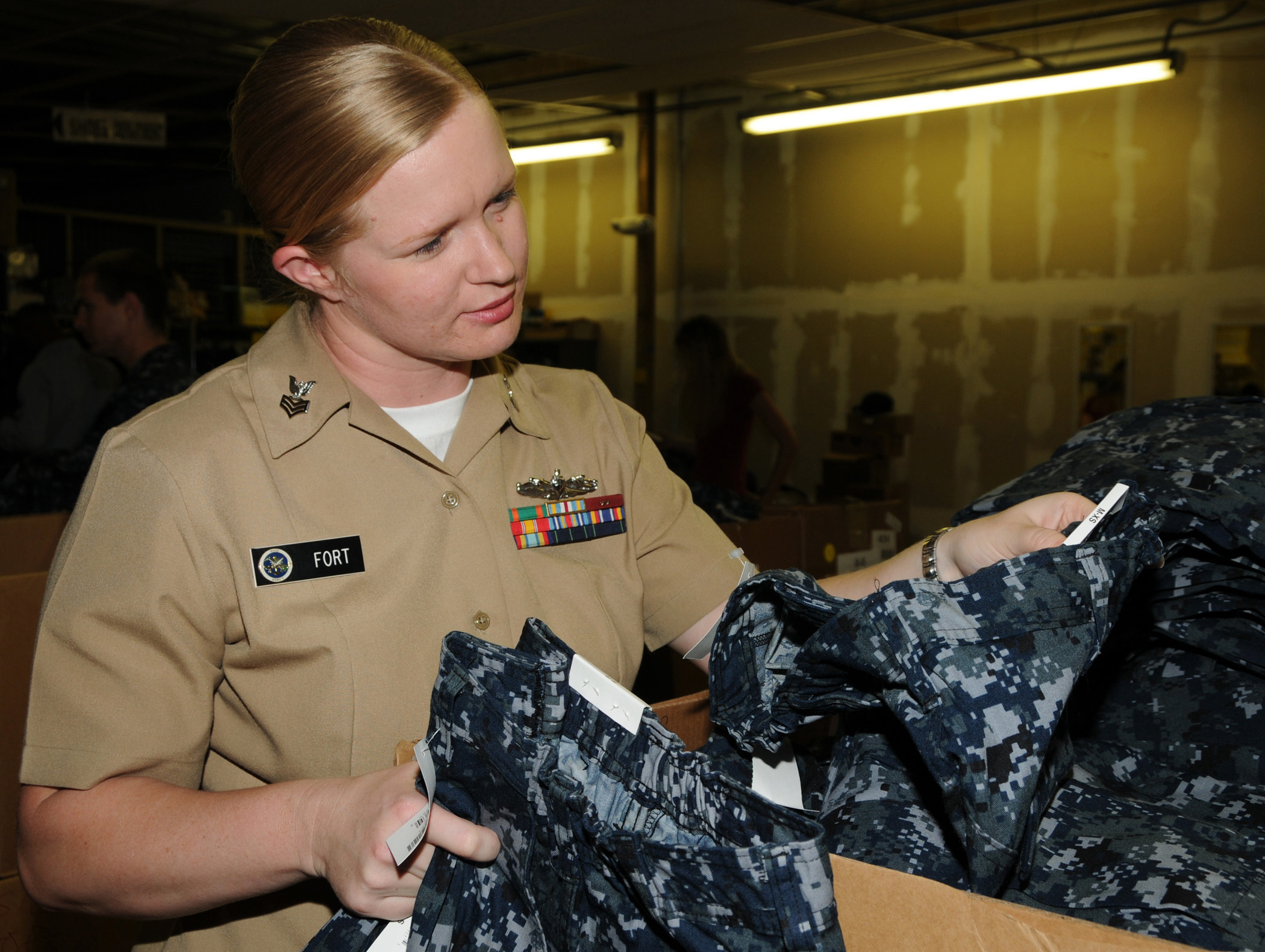
Uniforms were the second biggest topic identified as an easy fix. The consensus of opinions was to lighten up the sea bag with fewer and more practical uniforms, or more bluntly put by a master chief, “Stop it with the constant uniform changes that cost the Sailor a ton of money!” One active duty commander suggested, “Get rid of summer whites, they are and always have been completely impractical. They are neither dressy enough for the office setting with Joint partners and civilians in a shirt and tie. SDBs should be the year-round coat/tie equivalent.”
The most interesting input came from our female officer and enlisted professionals. Cmdr. Kelly Goris-Hinderer, a Naval Flight Officer currently serving at the Naval War College wrote, “STOP the gender neutralization of our Navy. It’s okay for women to look like women.” Hinderer added, “The Navy needs to do away with all of the drastic uniform changes for female officers and chiefs. … It is about $450 out of pocket costs.” Her comments echo FMC Port’s sentiments, that “no one asked for this” and it lends nothing to the Navy’s ability to carry out its mission.
For nearly two decades the Navy Task Force Uniform has been the center of controversy in the fleet. The sentiments of the many comments submitted on this topic indicated both a desire to end the uniform churn and to find something that makes sense and stick with it. This is a broken window that is self-inflicted and causes unnecessary headaches in the fleet—clearly the Navy can do better. The ideas presented above are just the tip of the iceberg.
Stop naming ships after politicians
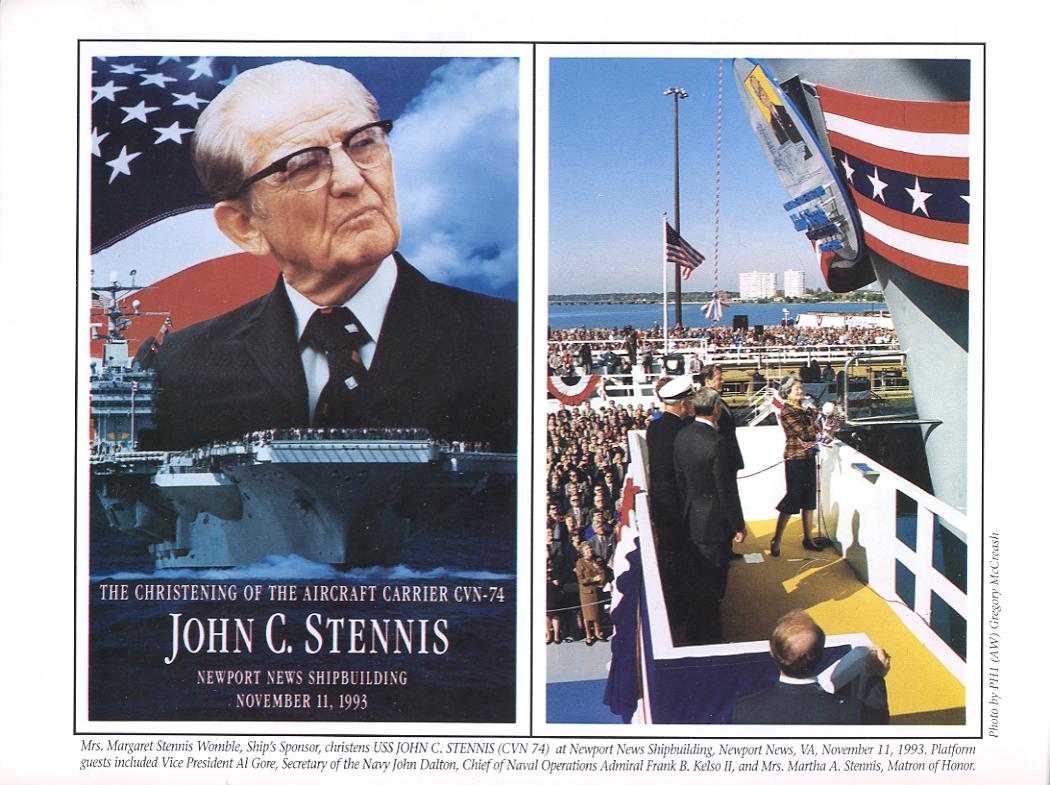 This topic was a close third to uniforms. One active-duty Navy captain wrote, “When we run out of ships named after recipients of the Medal of Honor, Navy Cross, and re-use all of the historic names such as Constellation, then we can name ships after politicians.”
This topic was a close third to uniforms. One active-duty Navy captain wrote, “When we run out of ships named after recipients of the Medal of Honor, Navy Cross, and re-use all of the historic names such as Constellation, then we can name ships after politicians.”
An interesting idea proposed was to name ships after modern day battles such as Kuwait City, Fallujah, Kamdesh, and Ramadi. This idea resonated well with the current generation of Iraq and Afghanistan warriors as well as the few survey participants old enough to remember the first Iraq War (Operation DESERT STORM). It seems fitting that our nation’s most combat-experienced generation that served and sacrificed fighting in these modern-day battles would be honored by a place in line for ship names before the politicians that voted to send them there.
Return authority to the appropriate level of command
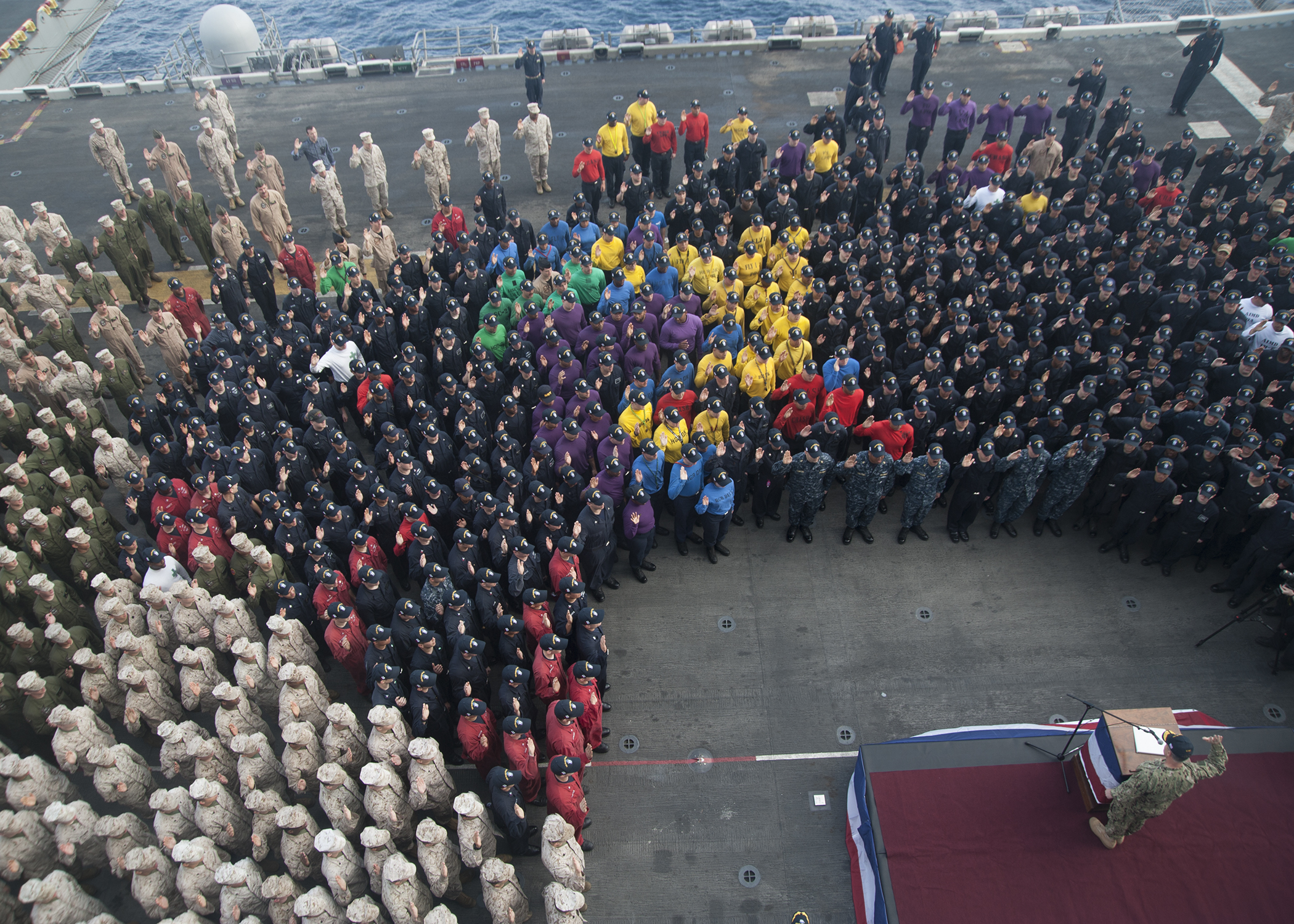
This was an interesting idea that emerged in the survey. One Navy captain remarked that nothing that senior leadership of the Navy does should be “quick, cheap, or easy…surely some lower level of competent authority could accomplish those things.” His sentiments were shared by others in the snowball survey. Many felt that senior leadership’s involvement in the minutia of uniforms and social-engineering was the cause of so many broken windows. Those holding this opinion felt that senior leaders would better serve the Navy by focusing on the “long, hard, and difficult things” rather than worrying about gender neutral uniforms, and which retiring congressman is next in-line for a ship name.
A retired senior chief petty officer now serving as government contractor suggested that this restoration of authority could be begin by simple things like “returning the authority to execute travel funds to the commanders.” He added, “What a great and easy way to demonstrate trust and confidence in flag officers.”
These opinions reflect the other thing that Gladwell contends helped “tip” New York’s crime problem; that fixing broken windows lets the population know that those in charge actually care. It also indicates that if the population served, in this case the Navy, believe that it is their own leadership that is breaking windows, then clearly something is out of order, but not beyond repair.
Reemphasize Command PT
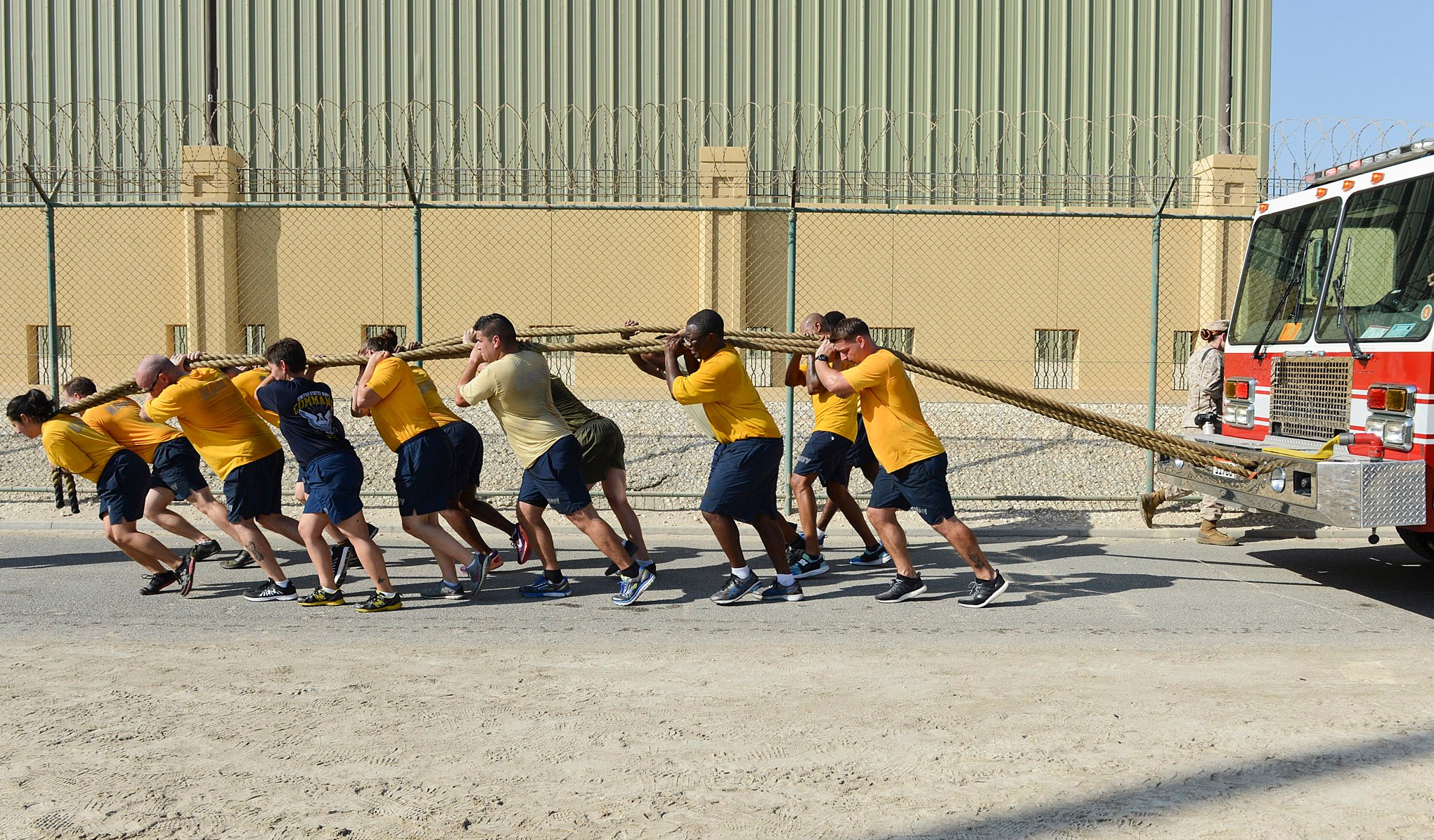
This was the final quick, cheap and easy way to improve the fleet. Cmdr. Todd Pettibon wrote that commands need to bring back mandatory “command-wide daily PT.” Others noted that the Army and Marine Corps do this and it has positive impacts on unit cohesion, esprit de corps and health. Pettibon echoed Clausewitz when he noted, “In the end war is a human endeavor, and it ultimately requires fit, clear-minded humans to fight it.” His point is hard to argue with. Like everything the Navy does with ships, weapons, and materials, people also must be fit and ready when they are called upon to act.
A greater emphasis on command physical training also gets back to the original reasons for the Navy’s fitness program that began in the mid-1980s: fit to fight, teamwork, and improved health. This back-to-the-future suggestion is another easy way to improve the force.
Final thought… when I asked my friends for their answer to “share one quick, cheap, and easy thing you would tell the new Navy leadership team to fix,” I was overwhelmed by the immediate volume of responses. Clearly, there are some pent-up frustrations with a few of the broken windows on this list. Those serving are seeing the broken things that they believe can easily be fixed. One retired Navy Commander and prior-enlisted Marine astutely observed that, “every single one of these points is really about tradition. By severing tradition from our ethos, we are no longer tied to anything.” Perhaps therein lies the source of this discord in the hearts and minds of so many in the naval profession?
By no means should the Navy create policy based on opinion polls, especially one as informal as this. However, if the legitimate grievances, such as rating cancellation, controversial ship names, and unpopular uniform changes can’t be corrected, then they need to be better explained so that order can be restored, and the men and women of the U.S. Navy can better focus on their mission.

